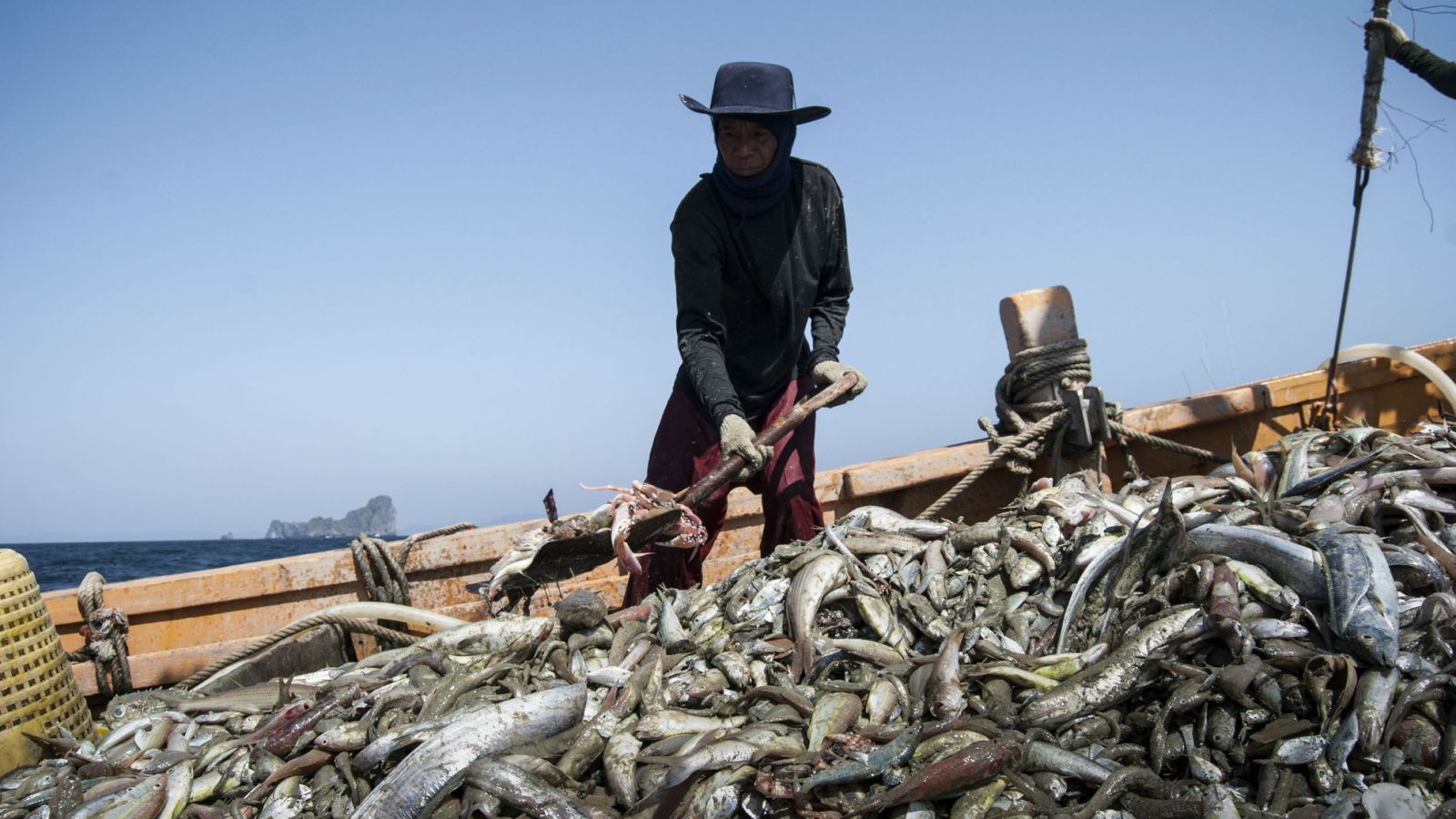Thai Court to Hear Human Trafficking Case

Trang Provincial Court in Thailand has set a first court hearing date for a human trafficking case relating to migrant fishing boat workers from Myanmar for May 13, 2016.
On October 21, 2015, officers from the Anti-Human Trafficking Center, Department of Special Investigation and local police officers plus civil society organizations rescued 11 Myanmar migrant workers. According to initial inquiry, it was found they had been detained, confined, subjected to physical abuse and had their wages deducted.
Authorities then arrested Ko Nang Jirotemontree, owner of Boon Lap Fishing and Chairperson of the Trang Fishing Association, along with others. They are accused of using force or the threat of force, abduction, fraud, deception and abuse of power against victims of trafficking, some under the age of 18. The alleged offences also includes slavery, as some of the victims have not received any pay.
Labor rights abuses, including forced labor and human trafficking, have been documented across Thailand’s seafood sector in dozens of reports over more than a decade. Recently, unprecedented international attention on Thailand’s seafood industry, particularly the plight of migrant workers who make up the majority of the workforce, has prompted a flurry of action from governments, exporters and Western brands that sell Thai seafood.
However, despite the growing number of government and industry initiatives, migrant workers in Thailand remain as vulnerable to abuse as ever, states a joint publication released earlier this year by the International Labour Rights Forum and the Migrant Workers Rights Network.
There are three to four million migrant workers in Thailand. Most come from neighboring Myanmar, though there are sizable populations of migrants from Cambodia and Laos as well. These workers are the drivers of Thailand’s booming export economy, filling a labor shortage in industries many Thais will not work in, including manufacturing, construction and seafood harvesting and processing. Abuses are not isolated to the seafood sector, but can be found in most areas in which migrant workers make up a large proportion of the working force. In seafood harvesting and processing, migrant workers make up about 90 percent of the workforce.
In February, a group of international labor, environmental and human rights organizations, including Human Rights at Sea, sent a letter to Karmenu Vella, the E.U. Commissioner for fisheries, maritime affairs and environment urging the Commission to maintain pressure on Thailand on human rights abuses in the nation’s fishing industry.
The aim was to convince Thailand to build upon positive reforms that have recently been made to its fishing industry, to ensure that the reforms have longevity and to address the structural problems that facilitate both illegal, unreported and unregulated (IUU) fishing and human rights abuses.
The letter notes that Thailand has made some progress on monitoring, control and surveillance of vessels within its fishing fleet since the Commission first made its yellow card designation in April 2015, but cites concerns over lax enforcement of those measures and ongoing vulnerabilities among Thailand’s migrant worker population that leaves them prone to exploitation in seafood harvesting and processing. It also criticizes the Thai government for use of criminal defamation to prosecute those who speak out about human trafficking.
